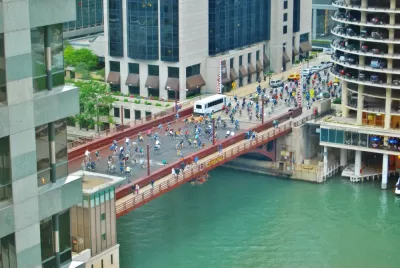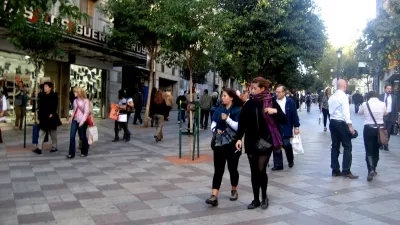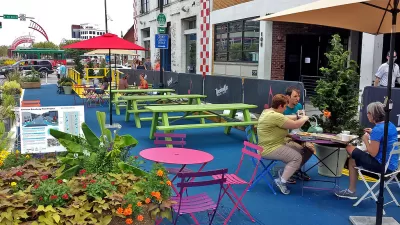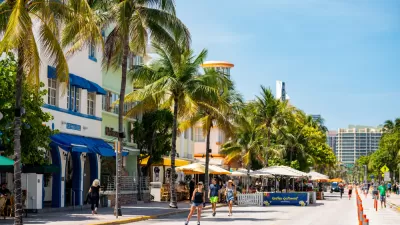Citing neighborhood concerns, the city is ending the Slow Street program on Leland Street as more parks and beaches reopen, but advocates want to see more permanent traffic calming measures.

During the pandemic, Chicago's Leland Street became a 'Slow Street,' letting residents use the space for walking, biking, and other active recreation and transportation. As John Greenfield reports, last November, the city dismantled the traffic calming infrastructure for snow plowing season, bringing it back in the spring. But "this year all of the traffic barrels and barricades were removed right after Labor Day, about three months earlier than last year. That’s despite the fact that it’s currently absolutely perfect for walking, jogging, and biking on streets where active transportation and recreation is made safer by banning motorized through traffic."
According to 46th Ward chief of staff Tressa Feher, "comments on a community survey and on Facebook indicated that 'people really like the idea of slowing [drivers] down, but there were problems with drivers not knowing where to go and the barrels getting moved around.' She went on, '[w]e want to talk to CDOT about other ways to calm traffic. If we can get better, more permanent infrastructure, I think people would really like that.'"
Although the street saw a 350 percent increase in foot traffic in 2020 during the Slow Street pilot, Alderman Matt Martin (47th) says "[t]his year, however, did not see as significant a use by pedestrians – likely due to the end of the Stay At Home order and the reopening of the lakefront, parks, and playgrounds." But advocates argue the traffic calming measures still benefit the community by encouraging bicycling and reducing car traffic.
CDOT plans to expand bike infrastructure in other parts of the city, such as the Leland Neighborhood Greenway, slated to be installed next year. "That facility will include contraflow bike lanes that will allow cycling in both directions, plus sidewalk bump-outs to shorten crossing distances, bike-friendly speed bumps, and raised crosswalks."
FULL STORY: Despite 85% increase in cycling on Leland, Slow Street was taken down 3 months early

Alabama: Trump Terminates Settlements for Black Communities Harmed By Raw Sewage
Trump deemed the landmark civil rights agreement “illegal DEI and environmental justice policy.”

Planetizen Federal Action Tracker
A weekly monitor of how Trump’s orders and actions are impacting planners and planning in America.

Why Should We Subsidize Public Transportation?
Many public transit agencies face financial stress due to rising costs, declining fare revenue, and declining subsidies. Transit advocates must provide a strong business case for increasing public transit funding.

Understanding Road Diets
An explainer from Momentum highlights the advantages of reducing vehicle lanes in favor of more bike, transit, and pedestrian infrastructure.

New California Law Regulates Warehouse Pollution
A new law tightens building and emissions regulations for large distribution warehouses to mitigate air pollution and traffic in surrounding communities.

Phoenix Announces Opening Date for Light Rail Extension
The South Central extension will connect South Phoenix to downtown and other major hubs starting on June 7.
Urban Design for Planners 1: Software Tools
This six-course series explores essential urban design concepts using open source software and equips planners with the tools they need to participate fully in the urban design process.
Planning for Universal Design
Learn the tools for implementing Universal Design in planning regulations.
Caltrans
Smith Gee Studio
Institute for Housing and Urban Development Studies (IHS)
City of Grandview
Harvard GSD Executive Education
Toledo-Lucas County Plan Commissions
Salt Lake City
NYU Wagner Graduate School of Public Service





























